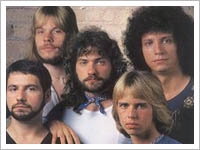By Don Jacobson
When Manitoba, Milwaukee, and the rest of the world aren’t treating you right, you wanna go North, South, or just plain Home to Chicago. In this edition of Chicago In Song – Chicago as escape hatch to mend your broken heart.
North to Chicago/Hank Snow
The main thing to remember here is that the entire premise of this song is a lie cooked up by Canadians. That’s right. Canucks. They’re not going to go “north” to Chicago at all, unless, of course, they’re those kind of country music Canadians who pretend they’re from Austin or Nashville when all the time they’ve been shopping for tuques in Thunder Bay.
You know, secretly Canadian.
“North to Chicago” was written in 1972 by Canadian Les Pouliot, who was best known as the producer of The Tommy Hunter Show, a program that ran for many years on the CBC and sort of served as Canada’s TV showcase for traditional country music. It was recorded by another Canadian, Hank Snow, the next year on his album called, ironically enough, “Grand Ol’ Opry Favorites,” which was co-produced by Chet Atkins.
It’s a kind of shuffling, innocuous confection that’s like a lot a whole lot of early 70s music, be it pop or rock or country – it all sort of sounds like John Denver or Bobby Goldsboro or the Carpenters to me. It’s about how Hank is getting ready to leave his unnamed home (obviously somewhere south of Chicago) and can’t quite make it – he’s already missing his baby.
 I filled my ol’ car up with gas
I filled my ol’ car up with gas
North to Chicago I was goin’
Just drove ten miles and turned around
I couldn’t leave without you knowin’
I had to see you one last time
And be with you once before I’ll go
To talk with you just one more time
And then I’m bound north to Chicago
While it’s not exactly clear why he’s leaving – although the hint is that it’s because of a broken heart – Chicago serves in this song in its role as a symbol of reinvention, that very American notion of being able to leave trouble behind by pulling up stakes and starting over somewhere else. It’s the same role played by Chicago in black history and in the blues – but Canadian history? I smell a fraud.
Please don’t be angry that I’ve come
I know you didn’t want to see me
I know I said I wouldn’t call and I tried my best
Love, please believe me
Well everything I own is in my car
You can see I’m leavin’ so you must know
I only come to say goodbye
And now I’m bound north to Chicago
Maybe he’ll keep going till he reaches Winnipeg.
To the Kill/Violent Femmes
If Chicago is envied elsewhere in the world as a symbol of hard-nosed American entrepreneurial genius, closer to home I think it’s mostly envied as a place that seduces Midwestern hometown girls into lives of sin. That’s been the case with two other songs profiled here: Cheap Trick’s “You’re All Talk” and Mark Wills’ “I Hate Chicago.” That theme continues with “To the Kill.”
Much like Cheap Trick’s Rockford inferiority complex, the Femmes seem to be suffering from the Milwaukee variation of that same malady. I never knew that until I studied the lyrics of this song, which appears on their very first LP, 1982’s The Violent Femmes, and precedes one of their all-time hits, “Gone Daddy Gone.” In it, Gordon Gano (very defensively, to my mind) protests that “I don’t live in Chicago” and that he “ain’t no Al Capone,” which, of course, is the ultimate lazy put-down to any Chicagoan.
Ain’t had no fun
All the time jacking around
Ain’t had no fun
All the time messin’ mind
I kick it around
But if it’s alright with you
If it’s alright, yes I will
Aw c’mon babe
Go ahead to the kill
I ain’t no Kid Chicago
I ain’t no Al Capone
But there’s a windy city
In my bedroom alone
Hmm. “A windy city in my bedroom.” This is the give-away. This Milwaukee hick is upset because someone from a certain big-shouldered metropolis has used his considerable charms to lure the girl away from the land of beer and Friday night fish fries and into that sophisticated international center of civilization that is Chicago. And really, who can blame her for leaving? Come to think of it, you know something, cheesehead? Get over it.
But he can’t. He’s pouting. Check it out:
I said I don’t live in Chicago
I don’t know no Al Capone
That bitch took my money
And went to Chicago
Boo-hoo-hoo. But still, I have a feeling this kind of thing happens a lot in the Rockfords, Milwaukees, South Bends and Grand Rapids of the world. And actually, I can see why it would upset the locals: just when you think you’ve got it made in your small town, some handsome stranger smelling of Frango mints pulls up in a late-model General Motors sedan, and you’re baby’s gone. It’s probably pretty tough . . . but on the upside, it obviously makes for good song inspiration.
Back to Chicago/Styx
By the time this song came out in 1990 or so, rock music was again at a horrible, horrible low point. It took the Replacements, Nirvana, Pearl Jam and all of Seattle to pull the art form out of the slough of despond that this kind of crap put it in. Styx perfectly personified everything that was nasty about what rock had become – corporate, bland, by-the-numbers, unable to admit that the real creativity of the 60s and 70s was long over and that even phoning it in was now too much of an effort.
End of the Century, the album on which “Back to Chicago” appeared, was supposed to be a big comeback for Styx, which hadn’t put out an album for seven years. But it was a critical flop – Tommy Shaw was too busy cleaning up his cocaine addiction and hanging out with Ted Nugent in Damn Yankees to be bothered with the “comeback.” Shows you what kind of power Styx still had. Dennis DeYoung took over and everything sounded like it was concocted at a record company executive’s poolside patio. “Sterile” doesn’t begin to describe it.
So what to do to inject a little “authenticity” into something so hopelessly inauthentic? Name-drop Chicago, of course. And that’s just what Styx does on this tune, trying to overcome its lightweight persona by blues-ing it up a bit, Chicago style – except that they go the overproduced horn section route, which of course, is exactly what killed the blues by making it . . . uh, inauthentic. And lyrically, Dennis is waxing homesick for the Windy City.
 And I don’t care what people say
And I don’t care what people say
Cause I’m gonna love you night and day
Oh baby, if you still want me
Still need me, all you gotta do is let me
Walk right up to your door
I’m makin’ my way back to Chicago
I’m makin’ my way come rain or shine
I’m gonna find true love waiting for me
I’m gonna make it all work out for good this time
“For good this time.” You know, when you’re flying around the world, being a poofy-haired rock star for years and years and years, and you start pushing 50, well, thoughts naturally turn back to that little piece of heaven on Sheridan Road that you left behind, and that special Windy City girl, the only one who really knows you, the only one who can understand what it’s truly like for a lonely Chicago boy out on the road.
Let’s go walking by the beach tonight
And watch the sun come up on Lake Shore Drive
Then I’ll take you in my arms
And I’ll keep you from all harm
Cause I know everything is gonna be alright
See? All that Mr. Roboto stuff and the accolades that came with it didn’t really signify a thing. Neither did the world tours, the private jets. Because at the end of the day, when Styx sang “Lady,” they meant you, Chicago girl.
Dig it.
Catch up with the Chicago In Song archive.
Posted on September 24, 2006


